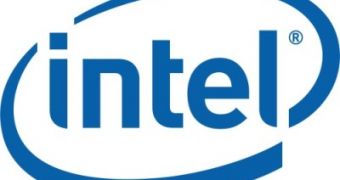Santa Clara, California-based Intel, has recently released a statement informing its partners that its highly anticipated, next generation of Itanium processors will not be launched by the middle of this year. According to the chip maker's statement, an 'opportunity' to further tweak a certain feature of the upcoming processor is the reason for a new delay for the server chip, codenamed Tukwila. Chipzilla has announced that its next-generation Itanium chips are now scheduled for shipping in the first quarter of 2010, after a series of previous delays to a project that has been in the works for a couple of years now.
In a part of its statement, the chip maker names the changes that have led to the new schedule delay: “During final system-level testing, we identified an opportunity to further enhance application scalability best optimized for high-end systems. This will result in a change to the Tukwila shipping schedule to Q1 2010.” The company continues by saying: “In addition to better meeting the needs of our current Itanium customers, we believe this change will allow Tukwila systems a greater opportunity to gain share versus proprietary RISC solutions including SPARC and IBM POWER. Tukwila is tracking to 2x performance vs its predecessor chip. This change is about delivering even further application scalability for mission critical workloads.”
Since its debut, the Itanium chip has been claimed to be a potential competitor for SPARC and IBM Power chips, which have been designed to take advantage of the RISC architecture. Unfortunately for Intel, the first generation of Itanium chips hasn't been all that successful in terms of market adoption, as customers continued to use solutions based on the aforementioned SPARC and IBM Power chips. At this time, only a few vendors, including HP, are selling Itanium-based servers.
Tukwilla is expected to deliver double the performance of the current Itanium chips and use the older 65nm manufacturing technology. In addition, like Intel's latest Xeon processors, the upcoming Itanium chips will use the company's new QPI technology and DDR3 memory support, for faster performance.

 14 DAY TRIAL //
14 DAY TRIAL //